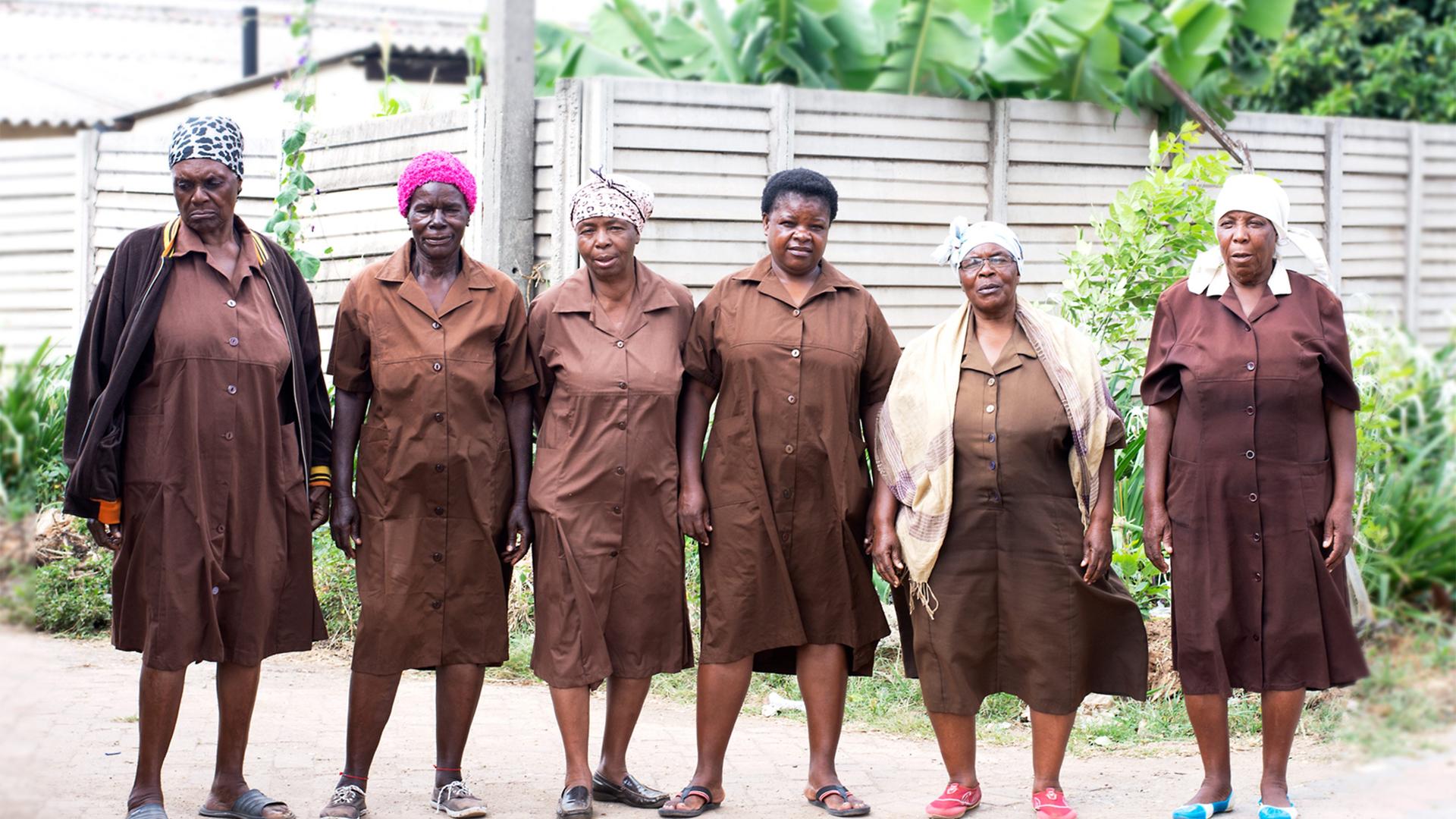In Zimbabwe, a unique talk therapy program known as Friendship Bench delivers much-needed therapeutic care at a time when people need it most.
COVID-19 has taken a huge mental health toll across the globe as people deal with increased social isolation, the deaths of loved ones, fears of illness and economic hardships.
Related: A therapists’ network supports immigrants, advocates during pandemic
Since its founding in 2007, the program has trained community members — many of them older women or “grandmothers” — to lend a supportive ear to those dealing with anxiety or depression. As the name suggests, the sessions often take place on wooden benches in communities around Zimbabwe.
The idea was simple: Two people sit on a bench together and talk. But that’s not safe during a pandemic, so the program has adapted by meeting clients for socially distant talk therapy sessions instead.
“[The program] came from the necessity to find a space to offer this mental health program, which was not present at the primary health care clinics before.”
“[The program] came from the necessity to find a space to offer this mental health program, which was not present at the primary health care clinics before,” explained Ruth Verhey, a clinical psychologist based in Harare, the capital, and Friendship Bench’s program director.
Mental health services can be difficult to obtain in Zimbabwe.
Related: Stockholm’s mental health ambulance could help the US rethink policing
There are fewer than 20 registered psychiatrists in a country of nearly 15 million people. To help bridge the gap, Friendship Bench trains community health workers to provide basic cognitive behavior therapy with an emphasis on a strategy known as problem-solving therapy, which Verhey says “help[s] clients work through their own problems.”
Verhey said many of the older counselors in the program are retired health workers who are now well-placed in the community to provide counseling services.
“They live in the same communities as their clients, meaning they really know the ins-and-outs of what’s happening in the communities and peoples’ lives,” Verhey said.
Pairs usually meet at convenient spots that are “conducive to both counsel and client,” which could also mean meeting at a public water pump, marketplace, or someone’s house garden, Verhey said.
Some services have moved online due to the pandemic, though that presents its own logistic challenges: Many clients use shared phones, which could compromise privacy or may not have Wi-Fi access (and can lead to connectivity issues).
“We’re learning how this all works best,” Verhey said. “Interestingly enough, we are being told by our counselors that clients are still preferring to see people face-to-face.”
Of course, that presents its own risks, as elderly women fall within high-risk categories for COVID-19. In Zimbabwe, vaccines are still unavailable.
In a recent essay for the BBC, Friendship Bench’s founder, psychiatrist Dr. Dixon Chibanda, criticized wealthy Western countries buying up vaccine stocks while front-line workers in African countries like Zimbabwe still do not have access.
After attending an online memorial for a medical colleague who died of COVID-19, Chibanda said he wondered: “How many health professionals and grandmothers will have to die before a vaccine is available here? How many front-line workers like them will suffer as they try to ease the suffering of others?”
“How many health professionals and grandmothers will have to die before a vaccine is available here? How many frontline workers like them will suffer as they try to ease the suffering of others?”
Verhey added that protecting Friendship Bench’s team of counselors is a top concern. The team has been given face masks, known to curb the spread of the coronavirus, and must adhere to all other COVID-19 regulations in place.
Despite the risks, many of the women still choose to continue to provide health services to others.
“There are those very, very dedicated and continue to do their work because they find it so important and so fulfilling and meaningful,” Verhey said.
